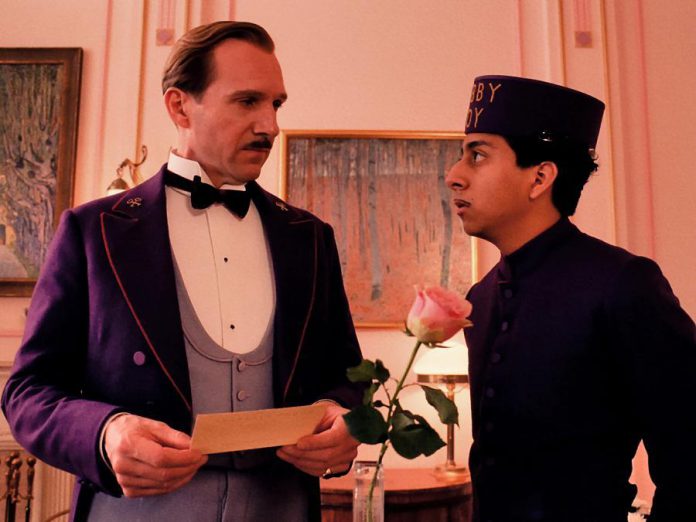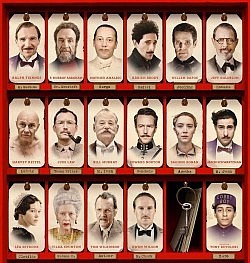
At what point does homage become theft?
We are all students of Godard and Truffaut: masters who tore open the very fabric of film and reassembled the stale American state of affairs into their own visceral and subversive vocabularies.
Yes, the French New Wave is indisputably one of the crowning glories in film, and one whose shadow looms heavily over the catalogue of supposed auteur Wes Anderson.
Anderson’s latest offering, The Grand Budapest Hotel, unsurprisingly continues to toe the line of the bafflingly popular formula he concocted and perfected with the broken, baroque beauty of The Royal Tenenbaums: post-millennial familial ennui served up in a bittersweet, pastel-hued box of new wave bon bons.
Every possible facet is tailored to make you cry out “Oh, isn’t that different and quirky!” (is there a worse adjective in the English language than quirky?). But we’ve seen this film before: one insufferably cute pastiche after the next bearing the fruits of tedious pratfalls, tacky violence, and language that feels vulgar against the storybook settings. Wrap that up in venetian wallpaper and they will come.
Anderson’s sterling reputation ensures a certain degree of gross returns no matter how smug or lazy the execution is. He’s never possessed the ability to ground the frothy mirth in any kind of tangible emotion, the way fellow contemporary oddball Spike Jonze has. Jonze’s magnificent Her poignantly contemplated our present and our future rather than, yet again, rehashing former glories.

Anderson’s films are never about cohesive narrative; they are about moments. Moments that are usually awkward, usually featuring romantic disconnects, and usually featuring the same overly qualified stable of actors stuffed into different silly hats and wigs. My heart sank at the flagrant waste of powerhouses like Tilda Swinton and Harvey Keitel. Though the rat-like beauty of Adrien Brody and the crocodile grimace of Willem Dafoe are diamonds in the rough.
I was hoping that once I got past the eye-rolling title and litany of obligatory cameos, there would be a good film hidden beneath the immaculate (if over designed) veneer. Alas, the lights are on but there’s nobody home. It is incoherent and, frankly, boring.
The visuals once so lustrous (and here heavily borrowed from the iconic Max Ophuls’ illustrious pattern book — there’s even a character named Madame D, for heaven’s sake) are muted down to a six, so that they might better complement unenjoyable music that was likely recorded in a field by 10 beards in suspenders delicately caressing artisanal ukeleles. Envision a never-ending Portlandia sketch that isn’t played for laughs.
For ultimately it is dangerous to wear your influences on your sleeve, as they will expose every crack and flaw in your piece and it will simply wither by proximity.
Instead of subjecting yourself to this insipid headache, track down a copy of Jules et Jim and Pierre le Fou and witness a moment in time where cinema was sexy, guerrilla, and had the frenzied pulse and beating heart of pure discovery.
The Grand Budapest Hotel – Trailer
Photos courtesy of Fox Searchlight Pictures


























